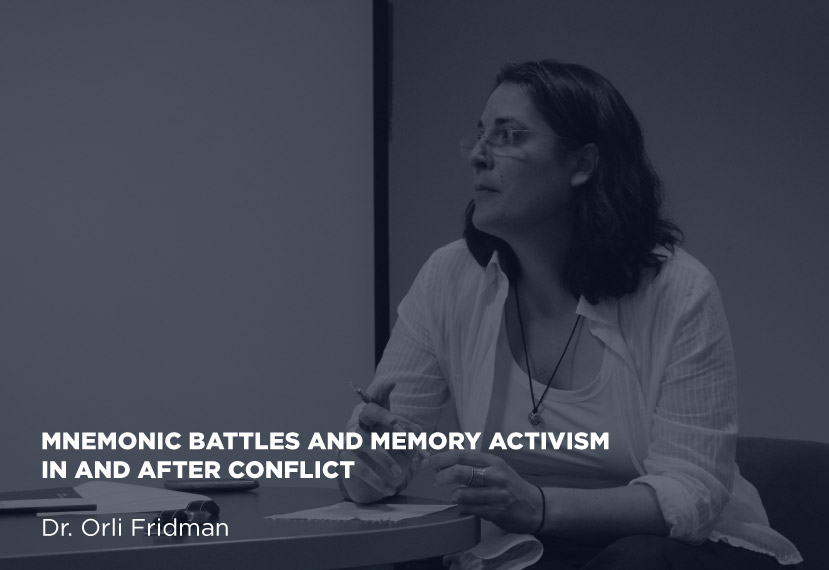
This course invites students to approach the study of conflict analysis and conflict transformation through a journey in the field of social memory studies. The course will focus on the role of social memory studies for peace and conflict studies scholars and allow students to delve into the analysis of internal dynamics of societies in or after conflict and the way they negotiate their pasts, presents and futures in the aftermath of war, conflict, repression, genocide and mass atrocities.
The course will explore dynamics and frameworks allowing the social organization of memory, and modes in which entire communities (and not only individuals) preserve and remember the past, commemorate it, deny or obliterate it. Finally the course will highlight practices related to memory work and memory activism in spaces of conflicts over the narratives and representations of the past (Jelin, 2003).
In order to do so, students will be introduced to some underpinning concepts in social memory studies and in conflict studies. Students will then apply this knowledge to a number of case studies, allowing them to further investigate the role of memory and memory activism in conflict analysis, and think comparatively about processes in conflict and post-conflict transformation.
The Kosovo Case Study will be taught by Dr. Nita Luci from the University of Prishtina, who will join the course as a guest lecturer.
Course Structure:
- Theoretical introduction to social memory studies, conflict analysis and Conflict Transformation;
- Collective Memory and National Calendars: collective memory, community memory, social organization of national memory, commemorative events
- Memory Work and Memory Activism in and after conflict.
Case studies may include:
- The memory of 1948 in the Israeli-Palestinian Conflict;
- Memory Silence and Denial: the memories of the wars of the 1990s in Serbia;
- The Politics of Memory and Statebuilding in Kosovo: Commemorative Aesthetics and Activism
(This case study will be taught by Dr. Nita Luci)

